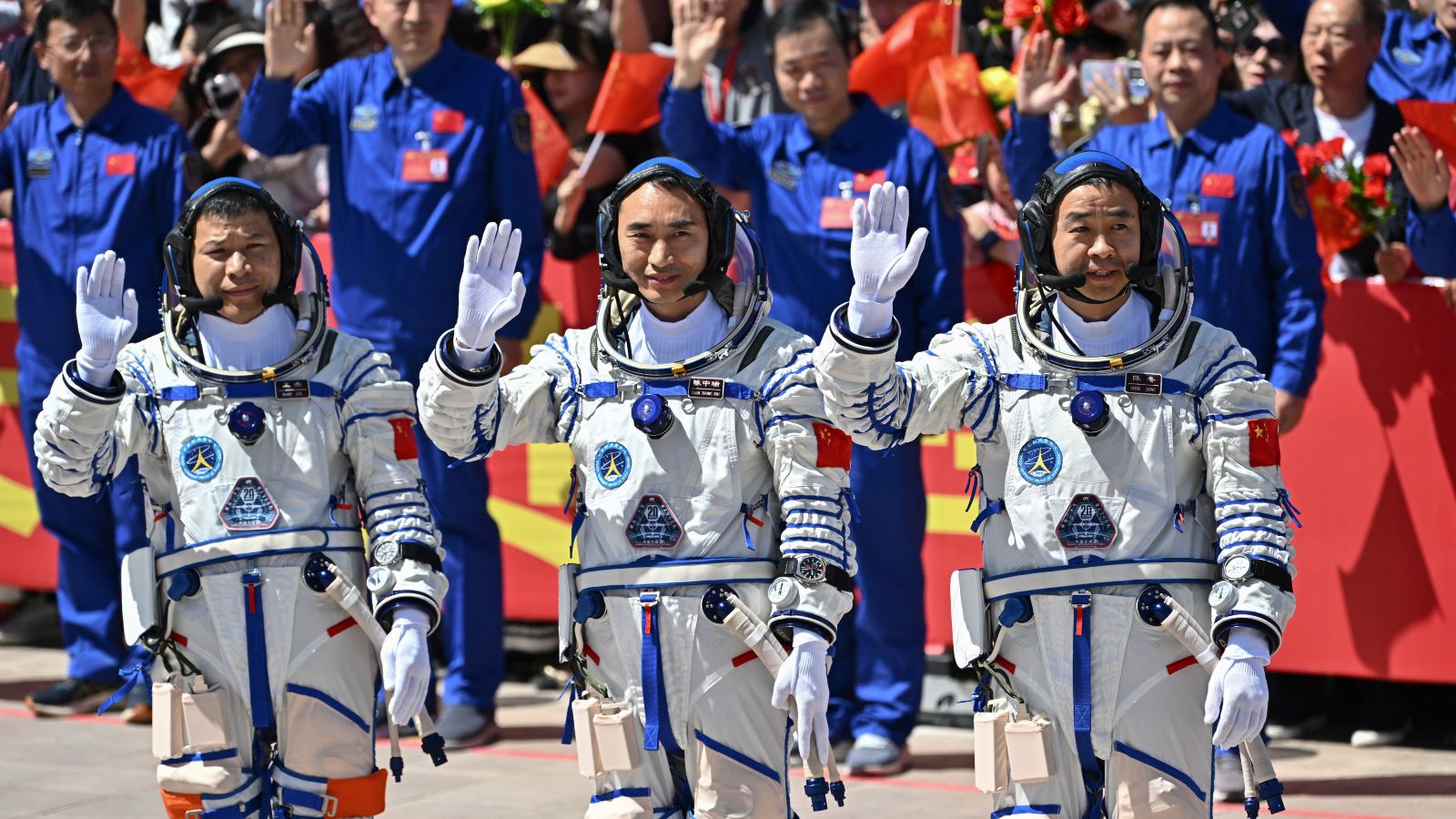Copyright livescience

Three Chinese astronauts, or taikonauts, have been temporarily stranded in space after their return capsule was struck by a piece of suspected "space junk" hours before it was due to depart. Officials are investigating exactly what happened, but so far, there is no indication of how much damage the craft sustained or when the crew will return to Earth. The taikonaut trio — Wang Jie, Chen Zhongrui and Chen Dong, collectively known as the Shenzhou-20 crew — has been living on China's Tiangong space station since April 24. They were due to return to Earth Wednesday (Nov. 5) following a successful handover period with the Shenzhou-21 crew, who arrived on the station on Halloween (Oct. 31). However, earlier on Wednesday, at around 10:30 a.m. local time, representatives from the China Manned Space Agency (CMSA) announced that the astronauts' return had been postponed, via a statement posted on the Chinese social media site Weibo. The stated reason for the delay was that the crew's return capsule "is suspected of being impacted by small space debris," CMSA representatives wrote in the translated statement. The agency added that an "impact analysis and risk assessment are underway" to ensure the health and safety of all six taikonauts currently on board the space station. However, no other details have yet been released. The potentially damaged spacecraft is likely still docked to the Tiangong space station, where it has remained since delivering the Shenzhou-20 crew to the station in April. It is made up of three detachable sections — a power and propulsion module, crew living quarters, and a parachute-assisted return module, according to Ars Technica. If any of these sections are deemed unsafe, the spacecraft will likely be ejected and returned to Earth without the astronauts. In this case, CNSA guidelines suggest that the Shenzhou-20 crew will return to Earth on board the Shenzhou-21 return module, which will, in turn, be replaced by another spacecraft that CMSA keeps on standby, according to Reuters. During the ongoing mission, Shenzhou-20's commander Chen Dong broke the record for the most cumulative days in space by a Chinese astronaut, having now spent more than 400 days orbiting our planet. This record will now be further extended by this delay. (The current record for most nonconsecutive days spent in space is held by Russian cosmonaut Oleg Kononenko, who has accumulated 1,111 days in space.) Dong's situation is reminiscent of that of NASA astronaut Frank Rubio, who inadvertently broke the record for longest spaceflight by an American (371 days) in September 2023, after his return module was irreparably damaged by a meteoroid impact, while docked with the International Space Station (ISS). In March, NASA astronauts Butch Wilmore and Suni Williams also made headlines when they returned to Earth nine months after their initial week-long mission began. The pair's extended stay onboard the ISS was the result of multiple technical issues with their Boeing Starliner capsule. This is not the first time that China's space station has been impacted by space junk: One of the station's solar panels was struck by debris in 2023, which triggered a partial power outage, according to Ars Technica. As a result, additional shielding has been added to parts of the station's exterior during recent spacewalks. The ISS is also susceptible to space junk and has to be constantly repositioned to dodge large pieces of debris. Parts of the space station, such as the Canadarm2 robotic arm, have sustained damage from smaller debris collisions over the years. The amount of space junk orbiting Earth is rising fast, in tandem with the increasing number of spacecraft around our planet. Some experts are concerned that, if this continues, we could reach a point of no return where a chain reaction of collisions will render low Earth orbit unuseable. This theoretical scenario is known as the "Kessler Syndrome." In the meantime, national space agencies and private companies are testing various space debris mitigation strategies.



